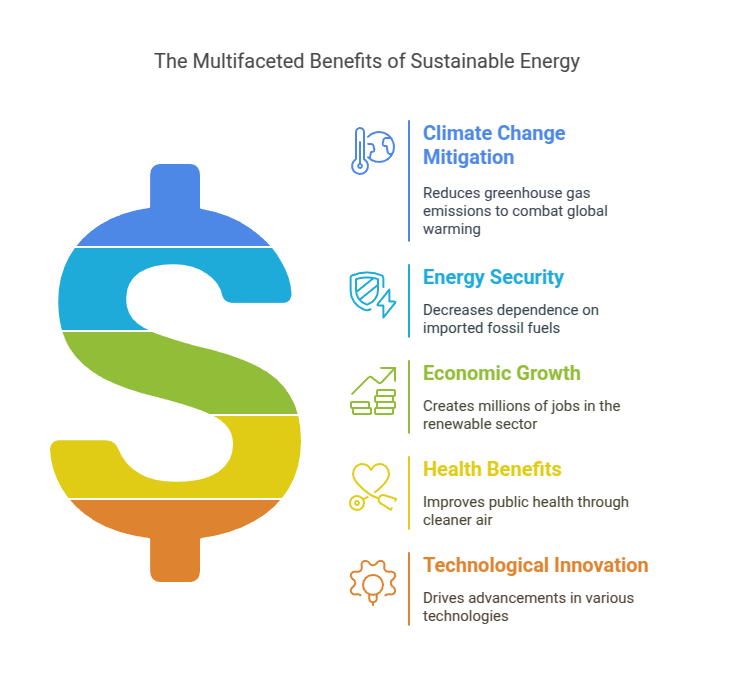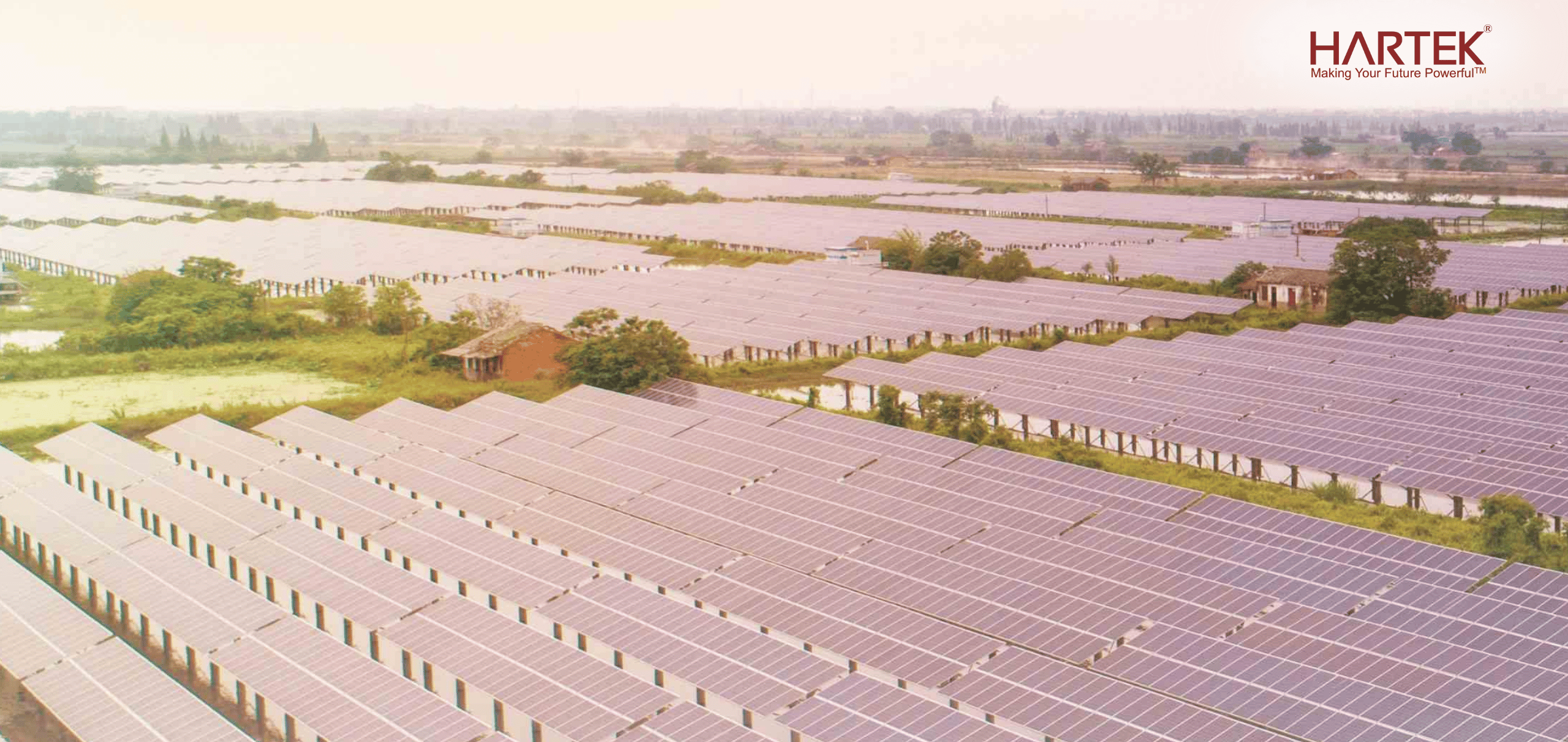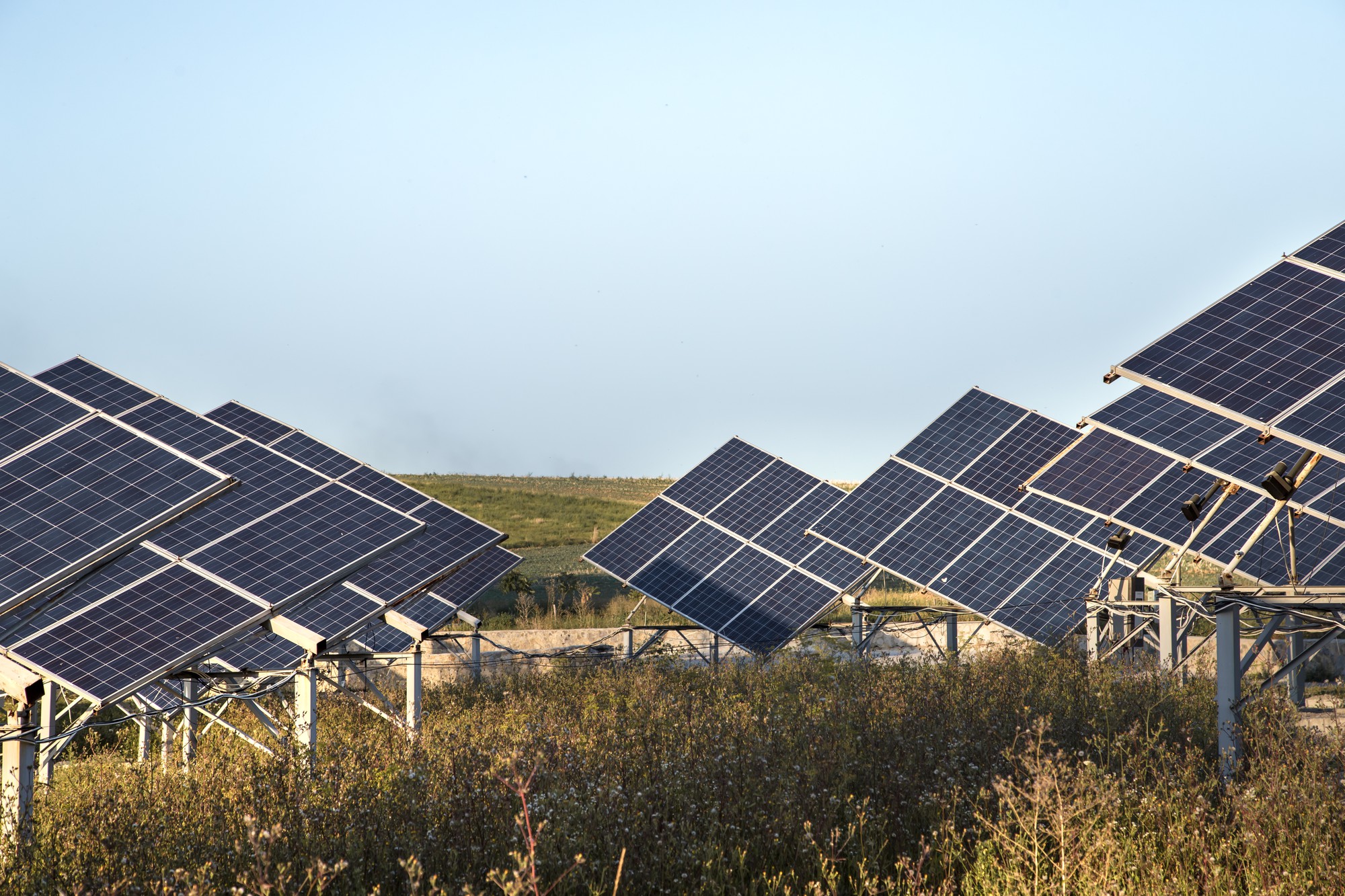| Did you know?The International Renewable Energy Agency (IRENA) predicts renewable energy will provide 90% of the world’s power by 2050? This startling prognosis emphasizes the critical role that renewable energy will play in our future. |
India’s renewable energy industry is rapidly expanding. An additional 25GW of renewable capacity is expected by 2024, putting India on pace to reach its ambitious clean energy targets. Hartek Group, for example, plays a vital role in promoting innovation and implementation in the sustainable energy sector. Hartek Group has come a long way contributing in the same and has completed more than 150 energy-related projects worth INR 15,000 crores. Join us on this voyage as we explore the exciting future of sustainable energy, a future that promises to power our globe while also being environmentally friendly.
Sustainable Energy: Why It Matters?
Sustainable energy is more than simply a technology revolution; it is a fundamental rethinking of how we power our planet. As worries about climate change grow and conventional energy sources decrease, the necessity of sustainable energy has never been more apparent.
At its heart, sustainable power is defined as electricity generated from sources that can be renewed naturally throughout a human lifetime. This includes solar, wind, hydroelectric, geothermal, and certain types of biomass energy. Unlike fossil fuels, these sources provide a clean, limitless supply of energy with no environmental effect.
Why Sustainable Energy
The importance of sustainable energy goes well beyond environmental considerations.
- Climate Change Mitigation: Renewable energy sources emit little or no greenhouse gases, which helps to slow global warming.
- Energy Security: By lowering reliance on imported fossil fuels, nations may improve their energy security and independence.
- Economic Growth: The renewable energy industry is a significant employment provider. The International Labour Organization estimates that the transition to a greener economy will produce 24 million new employment worldwide by 2030.
- Health Benefits: Reduced fossil fuel consumption results in cleaner air, which improves public health.
- Technological Innovation: The search for sustainable energy promotes improvements in a variety of sectors, including materials science and energy storage.

Innovations Fueling the Sustainable Energy Revolution
This industry is a hub of innovation, with new solutions continuously developing to enhance efficiency, lower prices, and overcome obstacles. Some significant developments include:
- Next-Generation Solar Cells: Perovskite and multi-junction cells provide better efficiency at reduced cost.
- Floating Wind Turbines: These enable wind farms to be located in deeper oceans, allowing for more robust and more constant winds.
- Advanced Energy Storage: New technologies, such as solid-state batteries and thermal storage, are tackling the intermittent nature of renewable energy sources.
- Intelligent networks: Artificial intelligence-powered networks can improve energy distribution, eliminate waste, and seamlessly incorporate many renewable sources.
- Green Hydrogen: Made from renewable power, green hydrogen is a flexible, clean energy carrier for hard-to-electrify industries.
How AI is impacting the Sustainable Energy Sector?
| Did you know?According to a report by PWC, artificial intelligence (AI) could help reduce global greenhouse gas emissions by 4% by 2030? |
AI is transforming the sustainable energy sector, providing new prospects for optimization and efficiency.
- Predictive Maintenance: Artificial intelligence systems can predict equipment breakdowns, decreasing downtime and maintenance expenses.
- Energy Forecasting: Machine learning algorithms can accurately estimate renewable energy production, therefore balancing supply and demand.
- Grid Management: Artificial intelligence (AI) can optimize energy distribution, lowering losses and increasing grid stability.
- Demand Response: AI-powered systems can evaluate consumption trends and modify energy use in real-time to reduce peak loads.
- Design Optimization: AI techniques may help with the design and location of renewable energy installations to maximize efficiency.
Trends Impacting the Future
Several important themes are developing that will shape the future:
- Transportation electrification: As the number of electric cars grows, so does the need for sustainable energy and new charging methods.
- Decentralized Energy Systems: Microgrids and peer-to-peer energy trading enable communities to produce and manage their energy.
- Energy-as-a-Service: This concept makes clean energy more accessible to companies and consumers.
- Circular Economy in Energy: Recycling and reusing renewable energy technology is becoming more critical.
- Hybrid Renewable Systems: Combining diverse renewable sources (for example, solar-wind hybrids) is becoming increasingly popular, increasing dependability and efficiency.
Future of Sustainable Energy
As we look to the future, sustainable energy will become more important in our lives. Renewable energy sources will become the norm rather than the exception, powering our homes and automobiles and fuelling industrial activities.
The transition to this energy is more than simply an environmental necessity; it is also an economic opportunity that will lead to a more resilient and equitable energy future. As breakthroughs develop and worldwide commitment to sustainability rises, we may anticipate significant changes in how we create, distribute, and use energy.
Summary
The future of sustainable energy is bright, driven by technical innovation, economic incentives, environmentally friendly energy, and the critical need to combat climate change. Hartek Group achieved success through designing and implementing robust transmission systems, assuring grid stability, and supporting renewable energy integration while installing grid connectivity for 10 GW solar projects. We conducted thorough energy audits for numerous clients, leading to an average energy savings of 20%. As we continue to discover and deploy sustainable energy solutions, we get closer to creating a cleaner, more sustainable environment for future generations.
Frequently Asked Questions
-
What is sustainable energy, and why is it important?
Sustainable energy comes from renewable sources like solar, wind, and hydro, providing a clean, limitless energy supply while reducing environmental impact. -
How does AI impact the sustainable energy sector?
AI enhances energy forecasting, predictive maintenance, grid management, and demand response, optimizing efficiency and reducing operational costs. -
What are the latest innovations in sustainable energy?
Key innovations include next-gen solar cells, floating wind turbines, advanced energy storage, smart grids, and green hydrogen technology. -
How does sustainable energy benefit the economy?
It creates jobs, drives technological advancements, reduces energy costs, and strengthens energy security by reducing reliance on fossil fuel imports. -
What role does Hartek Group play in sustainable energy?
Hartek Group contributes through grid stability projects, renewable energy integration, energy audits, and installing grid connectivity for 10 GW solar projects.
Share:
Explore More
Keep up-to-date with the most trending news stories that are shaping the world today.






